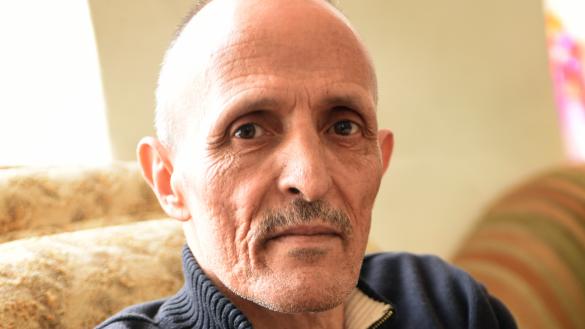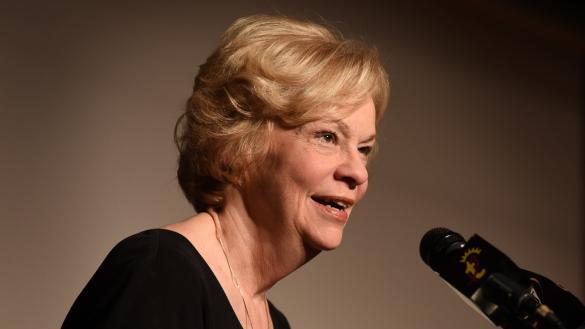Our teams in the Middle East are bringing the Bible to life, in a very special way, for refugees fleeing war. Alongside food and other essentials, we’re offering Bible-based trauma healing to refugees, helping people of all ages to talk through their experience with trained facilitators. Through this programme, thousands of refugees are experiencing the Bible in a new way.
When the crisis in the Middle East began, our staff immediately began meeting the physical needs of refugees, offering mattresses, food and tents. After a while, we realised that refugees had a deeper, unspoken need: they wanted someone to talk to.
So we launched our Bible-based trauma healing programme in Jordan, and it’s now being expanded into Lebanon, Syria and Iraq. It’s a programme to help people talk about their experiences, consider questions like ‘why is there suffering?’ and reflect on what the Bible says about their situation.

Pastor Amjad works to provide refugees with trauma healing support. Photography by Clare Kendall.
It’s based on the Bible, mental health practice and science. The programme was first developed in America to help child soldiers in Africa, and it now runs in 70 countries and is in more than 170 languages.
When a person is traumatised, the way their brain works changes. People struggle to regulate their emotions and behaviour. But scientific evidence shows that when people speak out their pain and, crucially, feel listened to, the brain can begin to heal.
Trauma healing doesn’t ‘cure’ people – we don’t claim that. But creating space for refugees to be heard can help them take the first vital steps towards healing.
We know people who have been helped in the most profound way through this programme: 3,000 families have been helped in Jordan alone.
Dr Diane Langberg, psychologist specialising in trauma: ‘We are called by God to enter into the suffering of others. It’s what God did for us. He’s called the Church to do the same thing.’
Pastor Amjad, leading the group: ‘They come with negative thoughts, with hate in their hearts. The children draw guns and killing. But with the Holy Spirit’s work we have made a difference. Now they draw flowers and children holding hands.’
Noura, from Homs, Syria: ‘Through the trauma healing we found God and accepted Jesus as our saviour. Our lives changed wholly. We have hope that there is another day, new life.'

Dr Diane Langberg trains volunteers as group facilitators. Photography by Clare Kendall.